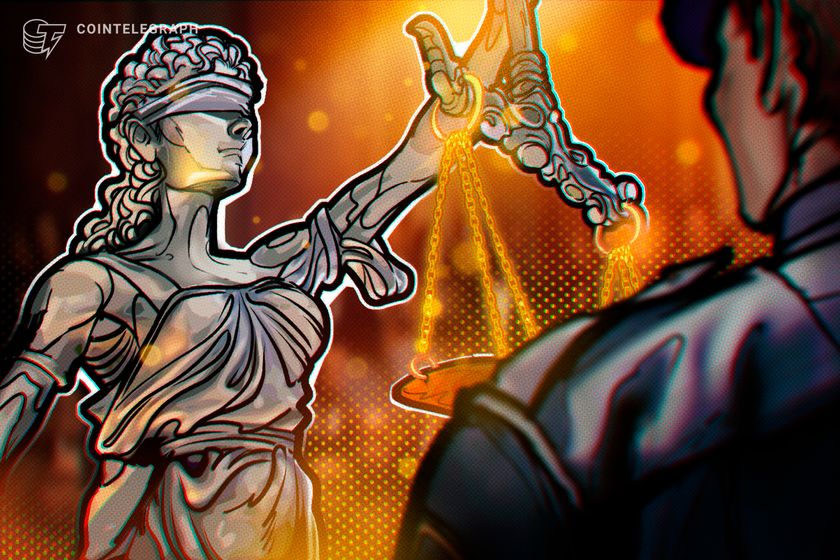Here’s what happened in crypto today

Today in crypto, the Texas House passed SB 21 to create a state-run Bitcoin reserve; DWF Labs’ Andrei Grachev said the GENIUS Act could legitimize stablecoins for institutions; and the SEC filed a $100M fraud suit against Unicoin and its executives.
Texas House passes strategic Bitcoin reserve bill
The Texas House of Representatives has passed the third reading of SB 21, a bill that seeks to establish a strategic Bitcoin reserve in the state. The bill passed in a 101-42 vote and will now go to Texas Governor Greg Abbott to either sign into law or veto.
SB 21, authored by state Senator Charles Schwertner, establishes a Bitcoin (BTC) reserve that is managed by the state’s comptroller. The legislation allows the comptroller to invest in any cryptocurrency with a market cap above $500 billion over the previous 12-month period. Currently, the only cryptocurrency fitting the requirement is Bitcoin.
Before the vote, state Representative Giovanni Capriglione said to the chamber that the bill was a “pivotal moment in securing Texas’s leadership in the digital age with the passage of our strategic Bitcoin reserve. Now, we embrace a modern asset with traditional properties for future promise.” The bill passed in the Texas Senate in a 25-5 vote on March 6.
Texas’s economy is the second-largest in the United States, with a gross domestic product of $2.7 trillion in 2024, according to KVUE. If Texas were its own country, it would have the eighth-largest economy in the world.
If Abbott signs SB 21 into law, Texas will be the second US state to allow for the creation of a cryptocurrency reserve. New Hampshire became the first to do so on May 6 after Governor Kelly Ayotte signed House Bill 302 into law.
GENIUS Act “legitimizes” stablecoins for global institutional adoption
Stablecoin adoption among institutions could surge as the United States Senate prepares to debate a key piece of legislation aimed at regulating the sector.
After failing to gain support from key Democrats on May 8, the Guiding and Establishing National Innovation for US Stablecoins (GENIUS) Act passed the US Senate in a 66–32 procedural vote on May 20 and is now heading to a debate on the Senate floor.
The bill seeks to set clear rules for stablecoin collateralization and mandate compliance with Anti-Money Laundering laws.
“This act doesn’t just regulate stablecoins, it legitimizes them,” said Andrei Grachev, managing partner at DWF Labs and Falcon Finance.
“It sets clear rules, and with clarity comes confidence. That’s what institutions have been waiting for,” Grachev told Cointelegraph during the Chain Reaction daily X spaces show on May 20, adding:
“Stablecoins aren’t a crypto experiment anymore. They’re a better form of money. Faster, simpler, and more transparent than fiat. It’s only a matter of time before they become the default.”
The GENIUS Act may be the “first step” toward establishing a “unified digital financial system which is borderless, programmable and efficient,” Grachev said, adding:
“When the US moves on stablecoin policy, the world watches.”
SEC sues Unicoin, executives alleging $100 million fraud
The US Securities and Exchange Commission sued Unicoin and three of the crypto platform’s executives on May 20, alleging they made false and misleading statements about crypto assets that raised $100 million from investors.
The SEC charged Unicoin CEO Alex Konanykhin, board member Silvina Moschini, and former investment chief Alex Dominguez with misleading investors about certificates that conveyed rights to receive Unicoin tokens and stock.
SEC Division of Enforcement associate director Mark Cave claimed that the trio “exploited thousands of investors with fictitious promises that its tokens, when issued, would be backed by real-world assets including an international portfolio of valuable real estate holdings.”
The SEC also charged Unicoin’s general counsel, Richard Devlin, with violating federal securities laws. Devlin paid a $37,500 civil penalty without admitting or denying the agency’s claim.






